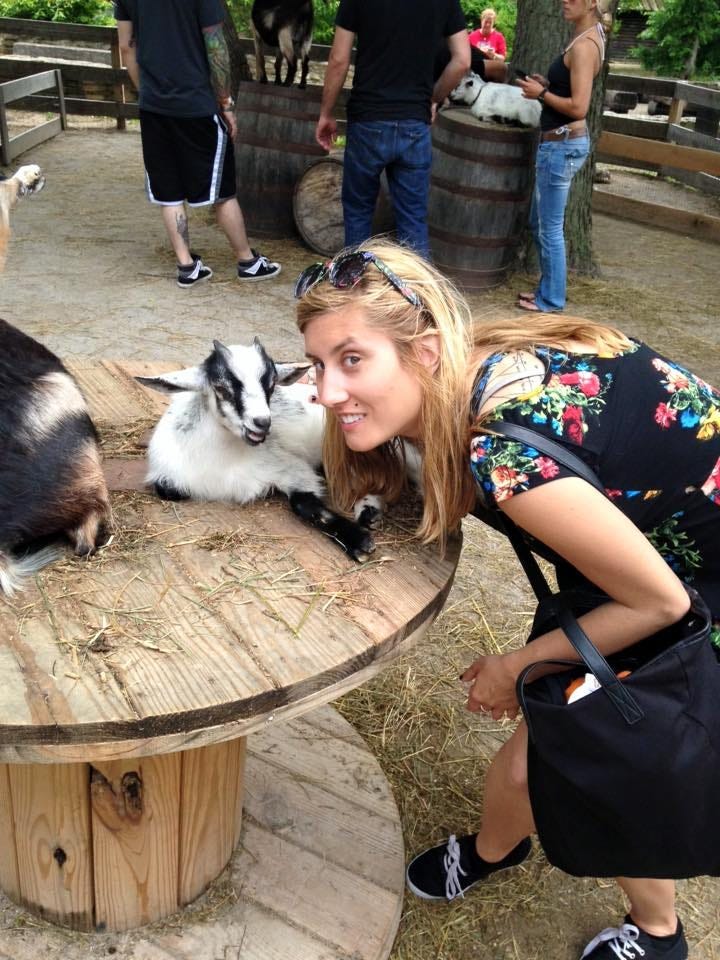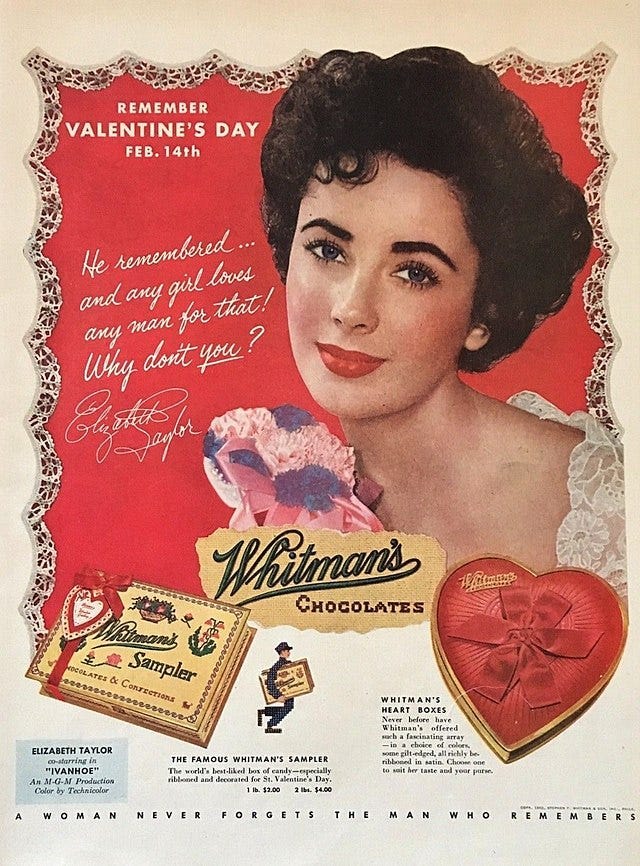Not All Girls Are Expected to Be Feminine
Yet another way that the myth of a singular "female socialization" fails.

For girls of many cultures & class backgrounds, “female socialization” means being expected to be strong, self-sufficient, and resiliently womanly.
Before I transitioned, I spent two or three years wearing nothing but dresses. I favored silky sheaths and kicky, brightly patterned skater dresses with open, flouncy skirts. I wore them over bicycle shorts or leggings with low-cut tennis shoes, but they were still quite impractical for any kind of strenuous labor or even office work. It didn’t matter. I wore them anyway, day or night, summer or winter, while at my desk or on a run, no matter the situation. I kept my hair long, and I bleached it at home with hydrogen peroxide and sunlight.
Other people didn’t really love this. You could say I was performing femininity, which in someone assigned female at birth you’d think would be desirable, but most people looked sideways at it because it was so over-the-top and frivolous. I was freezing cold in the winters, constantly risked revealing my underwear when I sat down in the summers, too underdressed for any job interview, and too playful in my silhouette to be taken seriously or even found all that attractive.
My coworkers and friends were baffled by the relentless dress-wearing. Boyfriends didn’t much care for it, and complimented me whenever I switched to anything more practical and sporty. The women in my family, all ardent wearers of loose t-shirts and practical blue jeans, remarked at my newfound girly attire with confusion. The only people who seemed to like it were my littlest girl cousins. The marveled at the swishing of my skirts, grabbed at my flower-patterned fabrics, and remarked to their mother that I was like a princess.
I dressed this way because it was comfortable — the soft cotton and gentle elastics of those cheap $20 dresses soothed an Autistic nervous system that couldn’t stand rough textures or structured tailoring. I found it far easier to get dressed in the morning when the process was as simple as pulling a single garment over my head. My dresses were predictable, yet colorful and fun, an expression of my overly casual, expressive personality.

I’d struggled to be an acceptable kind of girl all my life, and hated the sensation of having curves, but by donning a dress I thought I’d found a way to reconcile all these things. I could wrap my body in comfort, line my eyes for a little extra impact, and swish down the sidewalk freely, conforming to the female standard while moving with genuine ease.
But it didn’t work out that way. Because for me, and for women of a variety of different backgrounds, to be a conforming woman is not necessarily to be feminine or at all soft and swishy. What it means to be a socially acceptable ‘woman’ depends greatly on a person’s particular culture and class — and in the place where I was raised, women were supposed to be practical, low-maintenance, and resolutely strong.
Growing up, the girls around me were expected to play soccer and baseball and ride their bikes through thick, brackish puddles. They grew into teenagers who got their hands dirty helping out at the family business or in the garage. They had to aspire to heterosexual marriage and motherhood to be sure, but femininity was not something ever afforded to them. They only wore dresses to prom and on their wedding day.
Where I grew up in Ohio, the women had to raise the kids, maintain the house, work overnight shifts at the hospital or the grocery store, clean out the gutters, and keep all the animals fed. They drank beer and watched football and never talked about their emotions all that much. They smoked out back behind their workplace, shot the shit with their co-workers, told their children to toughen up, and held a hard, complicated life together as practically as they could. They were the rocks of their families and their communities, both nurturing and no-nonsense, with little taste for sensitivity, frivolity, or extravagance.
I was none of those things. As a child I was physically inept and passive, too terrified of other people and slow in my reaction times to play sports or fix things. Absolutely anything could make me cry, from a sad passage in a fantasy book to a broken refrigerator lightbulb. I pranced around the home on my tippy toes and waggled my arms in a flighty, fanciful way, and dreamed of becoming a fairy or elf. I was silly and too soft and downright effeminate, and though I’d been viewed as a “girl” since the moment I was born, none of these traits were particularly desirable or considered all that gender-conforming.
Most people talk about “female socialization” as a kind of enforced femininity that’s imposed on anybody assigned female at birth. But I wasn’t a masculine girl who was punished for being insufficiently girlish. I was a feminine child who was made an outsider because of my foppish, impractical femininity. I wasn’t strong enough, tough enough, or masculine enough to be the ideal, low-maintenance kind of woman that my culture had prescribed.
My upbringing was therefore far closer to what many gender non-conforming boys undergo than it was the stereotypical experience of the “female socialized.” And from speaking to other gay trans men and femme lesbian people, I’ve learned that my case is hardly unique. “Female socialization,” to the extent that it exists, is hardly a monolith. Femininity is not expected of every girl.
…
My friend Roxy is a cisgender, high-femme lesbian, and she tells me that throughout her childhood in rural Canada, her penchant for all things delicate and feminine was discouraged and looked down upon.
“Wearing impractical clothing is seen as very “show-off-y,” she explains. In her home culture, “Women are expected to be clean and presentable, but not beautiful or sexy or decked out with lots of frippery. Because that would be a distraction from your true purpose of serving God and your husband.”
Most rural women throughout the United States and Canada are raised within a very narrow set of gender normative standards, as well as unflinching religious expectations. But just because most American rural cultures are Christian, rigidly gendered, and highly traditional does not necessarily mean that women are expected to be a beautifully dolled-up Betty Draper type:
“Poor rural women are expected to work and do a lot of grueling labor around the house — stuff that would ruin hair, nails, pretty clothes,” says Roxy. And so dressing in an unassuming, practical way and being physically capable is what’s demanded of women in these environments, rather than femininity or beauty.
Roxy is a passionate collector of vintage clothing, and a highly feminine person with long, carefully maintained pink locks of hair and a home adorned with beautiful, lacy designs, florals, and vintage posters and records. As a young person, she idealized the stars of old Hollywood, particularly Elizabeth Taylor and Marilyn Monroe, as well glam-rockers like David Bowie. But these tastes marked her as different and deviant within her community — she wasn’t living up to the humble, sturdy womanly ideal.

“Obvious individualism is heavily looked down on in rural areas,” she says. A lesbian woman with her tastes and showy, glamorous femininity couldn’t get along well out there. And so many years ago Roxy moved to the city, where she could meet other people like herself, pursue a career in writing, and spend her nights going out dancing in her most over-the-top outfits and manicures.
I think the average person who considers “female socialization” a singular experience might look at Roxy in her pink lipstick and lacy tops and assume she always had an easy time presenting herself to the world, if nothing else. But in reality, Roxy was raised in a repressive, conformist environment that hurt her deeply, and she had to set out on her own to build a life where her genuine passions and sexuality could be openly expressed.
Roxy’s story resembles the story of countless other LGBTQ people who have had to fight for their individuality — and for their femininity. And that’s not any less true because Roxy was assigned female at birth. Each person’s experience of being socialized as “female” is unique to their specific position in the world, and for many working-class, poor, religious, or rural women, it does not involve demands of what upper-class culture considers ‘femininity’ at all.
…
Several gay trans men have shared with me that they were not allowed to be as feminine or effeminate as they desired to be when they were young, despite supposedly being “female socialized.”
Tumblr user AsStrongAsYouThink says that they used to beg for an additional layer to wear during baseball practice as a kid, because they would get cold out on the field. “I was told I wouldn’t be cold if I was running around. But no, I was sitting in the grass trying to braid flowers.”
When they were fourteen years old, AsStrongAsYouThink approached their mother with a drawing of a handsome boy’s haircut that they wanted to get. “She said ‘pretty faggy boy’ in the most derisive tone,” AsStrongAsYouThink says. The problem plainly wasn’t that AsStrongAsYouThink wanted to present more masculinely — rather, their mother took issue with how feminine and gay their desired haircut would look.
This experience challenges the oversimplified narrative of young, assumed “girls” only ever being denied masculine clothing and boyish short haircuts that would mark them as gender non-conforming. While that is unquestionably the true experience of countless butch women, nonbinary people, and other gender-variant folks, it’s clear that AsStrongAsYouThink’s experience most closely mirrors that of other feminine boys, not masculine girls.
“I love hanging out with other trans guys but…If I want to hang out with someone of my gender, I go hang out with drag queens,” they say.
I relate to all that they’ve shared strongly, as a kid who spent my short, ill-fated tee ball career constructing flower crowns from far out in left field, praying nobody’s home run would bean me on the head.
Tumblr user ShameBats also shares that he was largely denied femininity or any chance at softness despite being assigned female at birth, because of the norms of his rural Slavic upbringing.
“My upbringing was very different from what Americans understand as girlhood or female socialization,” he says. “The women in my family were in charge and in control. My mother didn’t wear makeup and when I put ‘too much effort’ into my appearance, I was mocked for being vain. Both my brother and I were screamed at and bullied for being ‘cry babies.’”
When ShameBats refused to wear a dress to his mother’s wedding at age thirteen, nobody even remarked upon it. He was given a pantsuit instead, with little fanfare. Most the women he grew up around didn’t ever wear dresses either, so it didn’t really stand out as a defiant act of gender non-conformity.
Though his culture taught him to be steadfast, unemotional, and not concerned with superficialities, ShameBats says that makeup and effeminacy provided him a refuge. “I felt like an actual rebel when I started experimenting with smoky eyed makeup and lipstick as a teen.”
If being bullied for crying and wearing makeup sounds more like a stereotypical gay male experience than a gender non-conforming female one, it should — because ShameBats was ultimately always a queer man, and his experience of gender socialization reflected that, as well as the sheer complexity of so-called “female” experiences.
“If it wasn’t for effeminate queer-coded male characters, I would have never figure out I was a guy,” ShameBats says. Unfortunately, the standard transmasculine narrative that many of us are presented with is that of a tomboyish “girl” who is pushed into dresses and makeup, and eventually goes on to realize he’s really a masculine guy.
“I absolutely do not relate to straight guys, cis or trans,” says ShameBats. “But effeminate gay guys? Those are my people.”
Tumblr user Ety-mologic states that while they were raised in a rural Christian family, and pressured to ‘find a nice boy and get married,’ they too were prevented by their mother from embracing anything girly. “I had a locked box under my bed where I kept some makeup I shoplifted, because I wasn’t allowed to buy or wear it,” they say. Though they are trans masculine, they say, “I relate more to a lot of transfemme experiences.”
The lines between various gender identities and gender socialization experiences are so obviously blurred. Trans women and feminine gay men are often beaten up for being sensitive ‘sissies’ as young children, and many trans masculine or butch lesbian kids are forced to grow out their hair or pluck their eyebrows. But for every masculine trans man who coveted thick overalls and mullets, there is a tomboyish trans lesbian who desired those trappings of butch female masculinity too — and who was absolutely not encouraged to explore those desires when she was mistaken for a “guy.”
The trappings of gender, sexuality, and group membership are complex, and because the rules of cishet society are designed to be oppressive nonsense, they frequently contradict themselves. As queer people, we find unity not in the qualities we’ve been forced to embody by these oppressive structures, but in the reverie of finally getting to escape them. What brings each of us joy is incredibly idiosyncratic, and what was one woman’s gendered torment can easily be another boy’s liberation.
Recently, a trans girl acquaintance asked me which media depictions of transgender men have brought me the sensation of gender euphoria, the way Spider Gwen’s implied trans identity ignited hers. I had to confess that I don’t often recognize myself in trans masculine figures, because I’m frankly not masculine, and because I never identified as a tomboyish girl or a lesbian the way many trans men have.
My queer icons growing up were people like Patrick Swayze’s drag queen character Vida in the film Too Wong Fu, and Harvey Fierstein’s role as Robin Williams’ gay brother in Mrs. Doubtfire. I never much related to the tough, unconventional female characters that so many of my queer women friends admired, like Tank Girl or Buffy. It just wasn’t me. I wasn’t the capable girl with the indefatigable spirit, I was the tired little boy in a dress with the limp Autistic wrist and the husky aging starlet’s voice.
Following the transitions of women like Stef Sanjati and reading the fiction of Casey Plett was what finally cracked my “egg” as a closeted person, not any stories of Joan of Arc or Mulan binding their breasts. That and the Tumblr of a hauntingly beautiful trans man Enjoloras cosplayer, whom I watched growing chin stubble while wearing cravats and maintaining long, golden locks with ravenous envy. These are the people that taught me I could be me — the gentle fops and fag-identified women who fought hard for their sensitive femininity.
A great many people are refused the comforts and bold extravagances of femininity, for reasons of class, race, and culture. For those whom society demands stoicism and practical usefulness, joyfully embracing femininity or effeminacy can be far more freeing than it is trapping. I wish that more feminists and queer liberationists would remember the experiences of such people when they try to neatly summarize the harms of gender socialization. Society’s requirement that all people be cis is deeply damaging to us all. But if we wish to effectively resist that damage, we must understand that its contours and mechanisms are incredibly complex.
“Female Socialization” is a Transphobic Myth
And it’s holding us all back. Here’s why.devonprice.medium.com




Reading this just fully burst my bubble after literally just finishing an article about how I leaned into toxic masculinity as an attempt to pass as a man. It makes sense that I am now at my happiest embracing my naturally camp and fruity self that I was as an afab child, rather than trying to lean into masculine stereotypes that have nothing to do with my actual personality. Fantastic article🙌
Wow. My transmasc buddy and I (transfem) LOVED reading this. One thing he said in the wash up that stukc with me is "I didn't avoid wearing short skirts because I was afraid of femininity. I avoided them because I was afraid of being harmed".
In my case, I avoided wearing anything but baggy disguise because I too was afraid of being harmed.
Norms curtailed our imaginations but violence curtailed our experimentation.